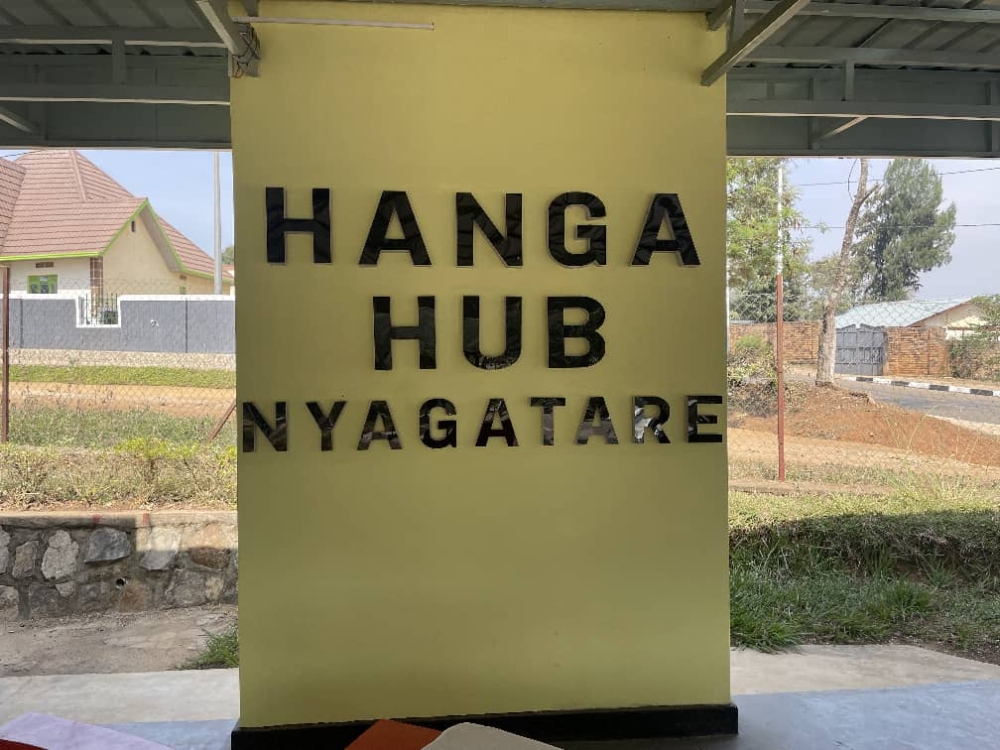At least 4.5 million Euros has been dedicated to funding incubation hubs in secondary cities.


Four incubation hubs that are being developed through an initiative by the Government of Rwanda are set to be a game-changer for young and ambitious innovators in the country’s secondary cities.
Launched in 2021 through a partnership with the European Union, the incubation hubs dubbed ‘Hanga Hubs’ are currently being set up in Rubavu, Rusizi, Muhanga, and Nyagatare districts.
The project aims to address the digital skills gap and unemployment by ensuring access to entrepreneurship support services for technology-based innovative start-ups in the secondary cities.
"Many of the entrepreneurship support services are found in Kigali, yet young, talented and ambitious innovators are found in every corner of this country. This informed the decision to set up these hubs in the secondary cities,”Pascal Murasira, Technical Advisor to Hanga Hubs, told The New Times.
Murasira believes the incubation hubs will foster innovative solutions to some emerging challenges.
"Food insecurity, access to quality health care, access to energy, the digital divide, climate change; all these are opportunities for young entrepreneurs in these districts to come up with innovative solutions,” he noted.
The Hanga hubs project is inspired by the model of K-lab, which is under the ICT Chamber.
Paula Ingabire, the Minister of ICT & Innovation, the ministry, its implementation agency RISA, aims to continue bringing critical infrastructure that enables Rwandan youth to access support when innovating and becoming entrepreneurs.
"Today, innovation can be found everywhere in Rwanda. Through various partners, including the EU, we have built Hanga Hubs. We now have seven hubs and aim to increase them,” she noted.
ALSO READ: FEATURED: Digital-led economic development and the tale of Hanga Hubs project
According to Daniel Kazungu, the SPIU Programme Manager and Coordinator at Rwanda Information Society Authority (RISA), the four districts chosen to host the hubs have unique economic drivers which young innovators can take advantage of.
"Rubavu and Rusizi districts are driven by tourist activities as well as cross border trade, Nyagatare district is driven by agriculture, while Muhanga district is big on textile and mining activities. We would like to leverage these economic drivers and build innovation around them,” Kazungu said.
EU Funding
A total investment of 4.8 million Euros from the European Union has been dedicated to the Hanga Hubs project.
"The 4.8 million Euros will go towards the physical infrastructure, acquiring technology and equipment, capacity building, operational costs and community outreach,” Kazungu said.
According to Ambassador Belén Calvo Uyarra, Head of Delegation of European Union (EU) to Rwanda, the EU anticipates that the project will contribute to job creation, youth empowerment and overall economic resilience in Rwanda .
"The European Union is proud to support the Hanga Hubs project in Rwanda, in partnership with the Ministry of ICT. This initiative exemplifies our commitment to fostering sustainable development and economic empowerment through innovation and entrepreneurship,” she said.
"With Hanga Hubs, we are pleased to nurture a sustainable ecosystem for youth, confident that they will continue thriving as centers of innovation, entrepreneurship, and economic growth in Rwanda long after the conclusion of EU funding,” she added.
The European Union has laid out different strategies, including capacity building, partnerships and revenue generation to ensure the continuity of the project once the EU funding stops.
Also Read: Innovative business models key to deepening Rwanda’s ICT sector, says UAE tech expert
Capacity Building
The Rwanda ICT Chamber, a member based organisation representing ICT private companies in the country, is working with Hanga Hubs to provide digital skills and accelerator programmes.
According to Alex Ntale, CEO of the ICT Chamber, as part of the arrangement with Hanga Hubs, they have opened up a training programme through which over 1,800 young people have already applied.
The programme will offer different skills to successful applicants such as digital literacy skills for secondary school level applicants, computer programming and software development to bachelors and masters in ICT level applicants, as well as digital entrepreneurship for those that are into innovation and self-employment.
Even though many of the young entrepreneurs go through solid training programmes, the survival rate of startups remains low.
"In the last 4-5 years, the survival rate of startups in the country has been between 40-45%. It will take proper organisation of value chains to ensure that these startups are thriving and not just surviving,” Ntale said.


